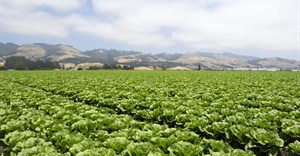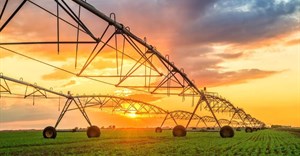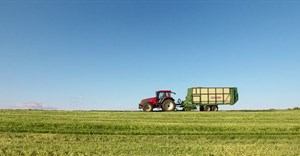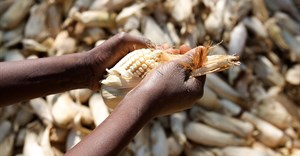Climate change - the real threat to farming profitably
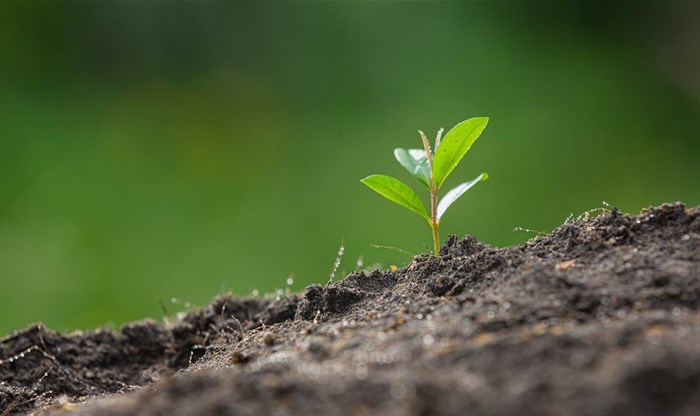
Over the past 100 years, southern Africa has seen temperate rises of up to 1⁰C. Although this may seem like an insignificant increase, the consequences have been devastating for agriculture. Elevated temperatures have affected rainfall patterns, seasonal patterns, plants’ phenological growth phases, and caused pest outbreaks.
Projections by the World Bank show that on a 1,5⁰C trajectory, farmers can expect several and frequent climate shocks in the future. Extreme droughts are predicted to double, heavier rainfall will continue and cause intense flooding, and the unavoidable effects on production will set the scene where urgent interventions would be needed to prevent global famine.
Some predict even higher temperate increases – up to 3⁰C; in some areas in northern and southern Africa even as high as 3.5⁰C. The severity of the droughts brought on by this type of increase would eventually evolve to be very enduring and pervasive, particularly in northern and southern Africa, which would threaten Africa’s stability in terms of agricultural development.
Billions of livelihoods are in the balance
For farmers in Mozambique, large seasonal losses of over 30% would become a certainty every century. This could contract Mozambique’s GDP by 2,5% and the financial and unemployment effect would be catastrophic.
The same dependence on the agricultural sector is true for South Africa, contributing 2,3% of our country’s GDP with the agricultural sector employing 5,1% of our labour force. As a significant provider of employment, especially in SA’s rural areas, climate-related catastrophes would have severely distressing consequences for this country.
Combined, the significance of agriculture in each African country makes it the epicentre of our continent’s economies. Overall, it contributes 25% of the continent’s GDP, 75% of domestic trade, and 65% of employment, which is why Africa is well positioned to be the world’s next breadbasket.
This will only be realised, though, if the adverse risk effects of climate change can be mitigated and farmers and farm workers’ livelihoods can be protected.
The rising risks in agriculture
With the current climatic environment and projections of future farming risks, agriculture will likely become an inherently risky way to make a living. Farmers have to make crucial operational decisions, such as planting, fertilisation, irrigation, and harvesting, without having a clear picture of how the climate may influence each phase of the farming cycle.
Putting pre-emptive measurements in place ahead of climate catastrophes are also very challenging.
Although farmers can implement soil science farming practices, such as rotating crops, planting cover crops and perennials, promoting the soil’s biodiversity, and adopting agroforestry practices, Mother Nature often has the final decision between a successful harvest and a failed one.
As large- and small-scale farmers face a world where weather patterns may become even more unfavourable due to climate change, the reality is that volatile crop and livestock yields mean instability in income streams. Higher volatility in the yields would also result in higher price volatility for both farmers and consumers. Should a farmer have an unsuccessful production season, which could severely deplete their cash flow and significantly increase debt, operational expenses still continue, such as fertiliser and seed purchases, equipment repairs, and wages.
For all of these stated reasons, it is imperative that farmers have measures in place to mitigate any unforeseen losses they experience due to climate-related disasters.
Ensure future protection with insurance
Most farmers understand the importance of having agricultural insurance in place to protect themselves and their farms against the threat of changing weather patterns but make crucial mistakes when it comes to the specifics. Therefore, we see our role as an advisory one to ensure farmers take the right type of insurance at the right time to provide optimal protection.
This is especially important when it comes to crop insurance, where many farmers fail to factor in the potential loss of profit due to an unsuccessful or destroyed harvest. Another mistake is taking out a very high excess to secure lower premiums, which could place them under severe financial pressure when trying to claim after a devastating climate catastrophe, where cash flow might already be taking the strain.
In terms of equipment insurance, farmers need to not only insure the original cost of the items but include expediting costs, currency fluctuations, import duties, shipping costs etc. Otherwise, any settlement for a claim will be less than what is needed to purchase the replacement equipment.
Get support from the agri specialists
Standard Bank, for example, created a portfolio of financed equipment and has worked with the insurance panel to structure competitive insurance products that cover the equipment, loss of use, as well as any credit shortfall in the event of loss or damage.
Recently, the bank appointed a specialist insurance panel for crop insurance, as well as specialist agri crop brokers to support farmers when arranging insurance.
Specialists assist in providing counsel on striking a balance between insuring against a wide range of panels, not being underinsured, and being the most cost-effective solution.
This enables the farmer to also negotiate a flexible premium payment option to align with their cash flows and align with seasonal income fluctuations.
By having their livelihoods protected, Africa’s farmers can grow their crops in a more risk-averse way and remain primary contributors to the continent’s economy and the subsistence of her people.









